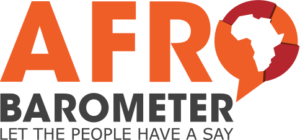 Many factors can affect how free and fair an election is, such as whether the opposition was given an equal chance to participate, whether media coverage was fair, whether votes were counted accurately, and so on, according to Michael Bratton, a senior adviser to Afrobarometer, and Sadhiska Bhoojedhur, a research analyst at StraConsult Ltd, the Afrobarometer national partner in Mauritius.
Many factors can affect how free and fair an election is, such as whether the opposition was given an equal chance to participate, whether media coverage was fair, whether votes were counted accurately, and so on, according to Michael Bratton, a senior adviser to Afrobarometer, and Sadhiska Bhoojedhur, a research analyst at StraConsult Ltd, the Afrobarometer national partner in Mauritius.
One important discovery is that a victory by the opposition party makes people more likely to see the election as free and fair, according to recent Afrobarometer* public-opinion survey findings from 34 African countries. In fact, to a significant extent, the quality of their elections determines whether they even want elections, they write for the Post’s Monkey Cage blog:
After an election that produced a change in ruling party, 71 percent of Africans say the election was free and fair; just 56 percent say the same for elections that confirmed the incumbent party in power. In other words, leadership alternation is seen as the strongest possible evidence for what constitutes a high-quality election.
Clearly, Africans do care about elections. They want them — if the elections are well conducted. They judge that these contests have been well conducted if the election leads to a change of top political leadership. Simply stated, Africans support elections to the extent that they bring about desired political change. RTWT
*A partner of the National Endowment for Democracy.







